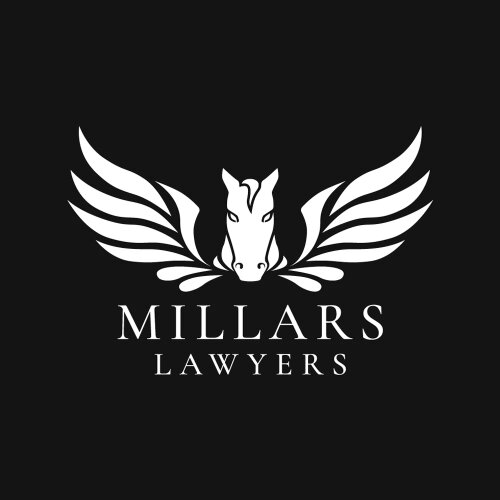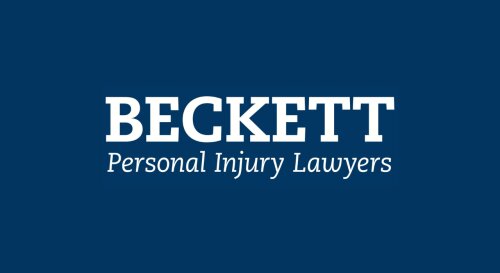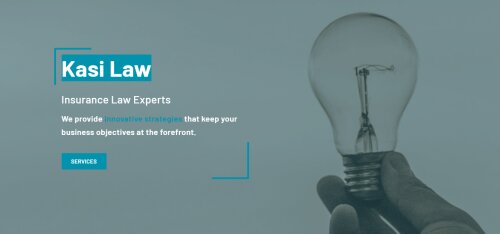Best Drugs & Medical Devices Lawyers in London
Share your needs with us, get contacted by law firms.
Free. Takes 2 min.
List of the best lawyers in London, Canada
About Drugs & Medical Devices Law in London, Canada:
Drugs & Medical Devices law in London, Canada governs the regulation, approval, marketing, and distribution of pharmaceuticals and medical devices. This area of law is crucial in ensuring the safety and efficacy of products designed to improve and maintain human health.
Why You May Need a Lawyer:
You may need a lawyer for various reasons related to Drugs & Medical Devices, such as product liability claims, regulatory compliance, intellectual property issues, and disputes over medical treatment. A lawyer can provide legal advice, represent you in court, negotiate settlements, and protect your rights in these complex legal matters.
Local Laws Overview:
In London, Canada, the regulation of Drugs & Medical Devices is primarily governed by the Food and Drugs Act, which outlines the requirements for the approval, labeling, advertising, and sale of pharmaceuticals and medical devices. Health Canada is the federal regulatory body responsible for overseeing compliance with these laws.
Frequently Asked Questions:
1. Can I sue a pharmaceutical company if I experience adverse effects from a drug?
Yes, you may be able to file a product liability claim against a pharmaceutical company if you suffer harm from a drug due to defects, improper labeling, or inadequate warnings.
2. What regulations do medical devices need to meet before they can be sold in Canada?
Medical devices must meet the safety, efficacy, and quality standards set by Health Canada before they can be marketed and sold in Canada.
3. Are there specific laws governing the advertising of pharmaceuticals in Canada?
Yes, there are strict regulations on the advertising of pharmaceuticals in Canada to ensure that promotional materials are accurate, balanced, and not misleading to consumers.
4. Can I legally import prescription drugs from other countries for personal use?
It is illegal to import prescription drugs into Canada without the proper authorization, as this can pose serious health risks and violate Canadian laws.
5. What should I do if I suspect a medical device is defective or harmful?
You should report any concerns about a defective or harmful medical device to Health Canada and seek legal advice to understand your rights and options for recourse.
6. How can a lawyer help me navigate regulatory issues in Drugs & Medical Devices?
A lawyer experienced in Drugs & Medical Devices law can provide guidance on regulatory compliance, assist with applications for approvals, and represent you in disputes with regulatory authorities.
7. What types of damages can I recover in a product liability claim involving Drugs & Medical Devices?
You may be entitled to compensation for medical expenses, lost income, pain and suffering, and other damages resulting from injuries caused by defective drugs or medical devices.
8. Is it necessary to have a legal background to understand Drugs & Medical Devices laws?
While a legal background can be helpful, it is not necessary to understand Drugs & Medical Devices laws. Consulting with a knowledgeable lawyer can provide you with the information and assistance you need to navigate legal challenges in this field.
9. How long do I have to file a lawsuit related to Drugs & Medical Devices?
The timeframe for filing a lawsuit related to Drugs & Medical Devices may vary depending on the circumstances of your case and applicable statutes of limitations. It is important to seek legal advice promptly to ensure your rights are protected.
10. What are the potential risks of marketing a pharmaceutical product without proper regulatory approvals?
Marketing a pharmaceutical product without proper regulatory approvals can result in severe penalties, including fines, injunctions, and criminal liability. It is essential to comply with all regulatory requirements to avoid legal consequences.
Additional Resources:
For more information on Drugs & Medical Devices law in Canada, you can visit the Health Canada website, contact the Canadian Bar Association for legal referrals, or seek guidance from local legal clinics specializing in healthcare law.
Next Steps:
If you require legal assistance in Drugs & Medical Devices in London, Canada, it is advisable to consult with a qualified lawyer who has experience in this area of law. Contacting a legal professional can help you understand your rights, options, and potential outcomes in legal matters related to pharmaceuticals and medical devices.
Lawzana helps you find the best lawyers and law firms in London through a curated and pre-screened list of qualified legal professionals. Our platform offers rankings and detailed profiles of attorneys and law firms, allowing you to compare based on practice areas, including Drugs & Medical Devices, experience, and client feedback.
Each profile includes a description of the firm's areas of practice, client reviews, team members and partners, year of establishment, spoken languages, office locations, contact information, social media presence, and any published articles or resources. Most firms on our platform speak English and are experienced in both local and international legal matters.
Get a quote from top-rated law firms in London, Canada — quickly, securely, and without unnecessary hassle.
Disclaimer:
The information provided on this page is for general informational purposes only and does not constitute legal advice. While we strive to ensure the accuracy and relevance of the content, legal information may change over time, and interpretations of the law can vary. You should always consult with a qualified legal professional for advice specific to your situation.
We disclaim all liability for actions taken or not taken based on the content of this page. If you believe any information is incorrect or outdated, please contact us, and we will review and update it where appropriate.












